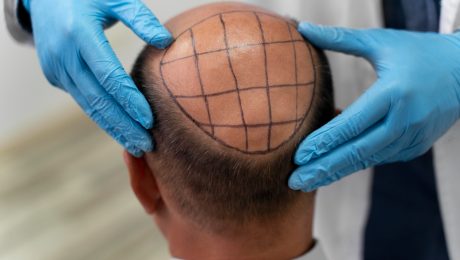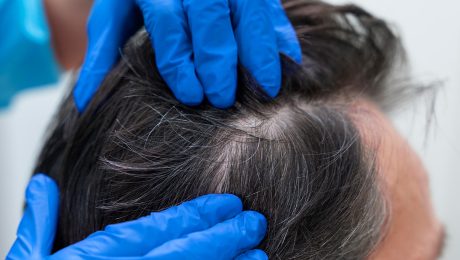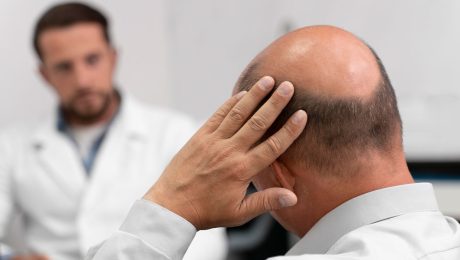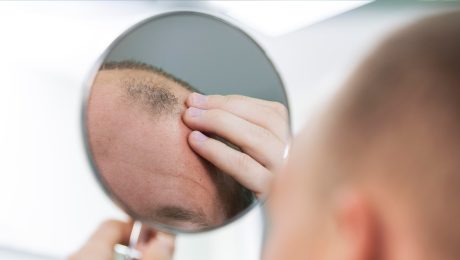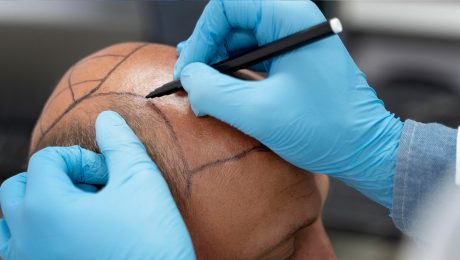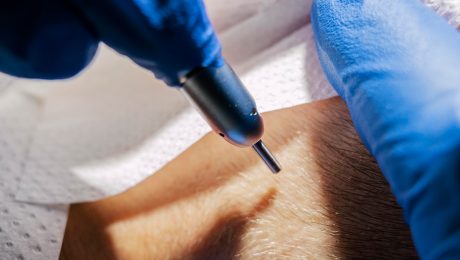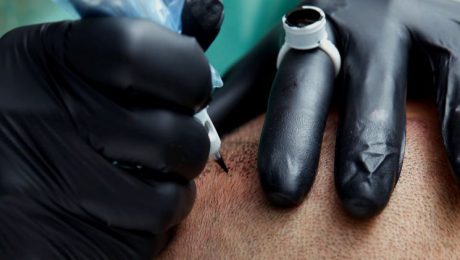How Many Sessions Is The Maximum Number Of Hair Transplantation Sessions?

How Many Sessions Is The Maximum Number Of Hair Transplantation Sessions?
Hair transplantation has become a popular solution for individuals experiencing hair loss. With advancements in techniques such as Follicular Unit Extraction (FUE) and Follicular Unit Transplantation (FUT), patients often wonder how many sessions they will need to achieve their desired results. This article will explore the factors that influence the number of hair transplant sessions and the maximum number of sessions typically required.
Factors Influencing the Number of Hair Transplant Sessions
The number of hair transplant sessions required can vary based on several factors:
- Extent of Hair Loss: The severity of hair loss plays a significant role. Individuals with advanced stages of hair loss may require more sessions to cover bald areas adequately.
- Donor Hair Availability: The amount and quality of hair in the donor area (usually the back and sides of the scalp) determine how much hair can be transplanted. Limited donor hair can mean the need for more sessions.
- Desired Density: Patients looking for higher hair density may require multiple sessions to achieve a natural look, especially if the initial density cannot be achieved in one session due to limitations in donor hair or the need to prevent scalp trauma.
- Hair Transplant Technique: Different techniques yield different numbers of grafts per session. FUT typically allows for more grafts to be transplanted in a single session compared to FUE. However, FUE is less invasive and might be preferred for patients who want smaller, less noticeable scars.
- Scalp Laxity and Health: The flexibility of the scalp (scalp laxity) and the overall health of the scalp can affect the number of grafts that can be transplanted safely in a single session.
- Patient’s Age and Future Hair Loss: Younger patients may experience progressive hair loss over time, which could necessitate additional sessions in the future to maintain a full appearance.
How Many Sessions Is The Maximum Number Of Hair Transplantation Sessions?
Technically, there is no strict maximum number of hair transplant sessions. If you are considering hair transplantation, discuss your expectations and concerns with your surgeon. They can provide insights into how many sessions you might need and create a realistic plan tailored to your unique circumstances. However, practical limitations include:
- Donor Area Depletion: If the donor area runs out of sufficient healthy hair follicles, it becomes impossible to continue with additional sessions.
- Scarring: Repeated sessions can lead to scarring in both the donor and recipient areas, which might limit further transplants.
- Patient Safety and Health: Surgeons must consider the overall health and safety of the patient, including factors like the risk of complications and the physical and emotional toll of multiple surgeries.
Typical Number of Sessions
- Single Session: Many patients achieve satisfactory results with a single session, especially when hair loss is not extensive, or if a moderate increase in density is desired.
- Two to Three Sessions: This is common for individuals with significant hair loss or those seeking high density. Sessions are usually spaced several months apart to allow healing and to assess the results of the previous transplant.
- More Than Three Sessions: In cases of extensive hair loss, limited donor supply, or specific patient goals, more than three sessions might be needed. However, this is less common and should be carefully planned with a hair transplant specialist.
Contact Us
For detailed information please contact us by filling out the form below.
- Published in General
Seasonal Hair Loss in Men

In Which Months Seasonal Hair Loss Occurs in Men
Seasonal Hair Loss in Men
A question such as in which months seasonal hair loss occurs in men is frequently asked by patients. While seasonal hair loss usually occurs in the fall – winter months, with the arrival of spring and summer months, a vitality will occur in the hair. Accordingly, hair loss that occurs in certain amounts in September, October, November, December, January, February can be expressed as seasonal hair loss. However, we would like to point out that it would not be correct to say that hair loss stops in spring and summer. Therefore, if you have suspicions in this direction, you should definitely consult your doctor and ask for help in this regard. If the hair loss is serious, a separate treatment method will be determined for this. For this reason, you should definitely consult your doctor and start the process in order to start the relevant treatment as soon as possible.
How to recognize seasonal hair loss
Seasonal hair loss is a condition that people experience intensely and confuse with hair loss disease. Seasonal hair loss can occur in almost every person and passes without any cause for concern. For this reason, we need to determine which hair loss is seasonal hair loss. You can adopt the following methods for this.
- First of all, collect your hair at the crown and take it in the palm of your hand.
- Then pull your hair 5 times in a way that is not too hard.
- The number of hair in your hand will be important here.
Hair Loss Treatment
If there is hair loss and it is not seasonal, a treatment method should be determined for it. Your doctor will first investigate the causes of hair loss and adopt an appropriate treatment method. If you balance the hormones in hormonally induced hair loss, the hair loss will stop. Similarly, if there is hair loss due to a skin disease, the hair loss will also stop with the treatment of this disease. These and similar underlying causes should be investigated. There is no treatment method only in genetic hair loss, but the severity and speed of hair loss can be reduced. In other words, hair loss cannot be prevented in genetic hair loss. If baldness has occurred, then hair transplantation will be adopted as a treatment method. Since hair transplantation provides a permanent solution to the problem of baldness, your hair will not fall out again after the corresponding operations. For this purpose, you can go to the nearest health institution and make an appointment with your doctor.
İletişime Geç
Detaylı bilgi almak için lütfen aşağıdaki formu doldurarak bizimle iletişime geçin.
- Published in General
What is the Success Rate in Hair Transplantation?
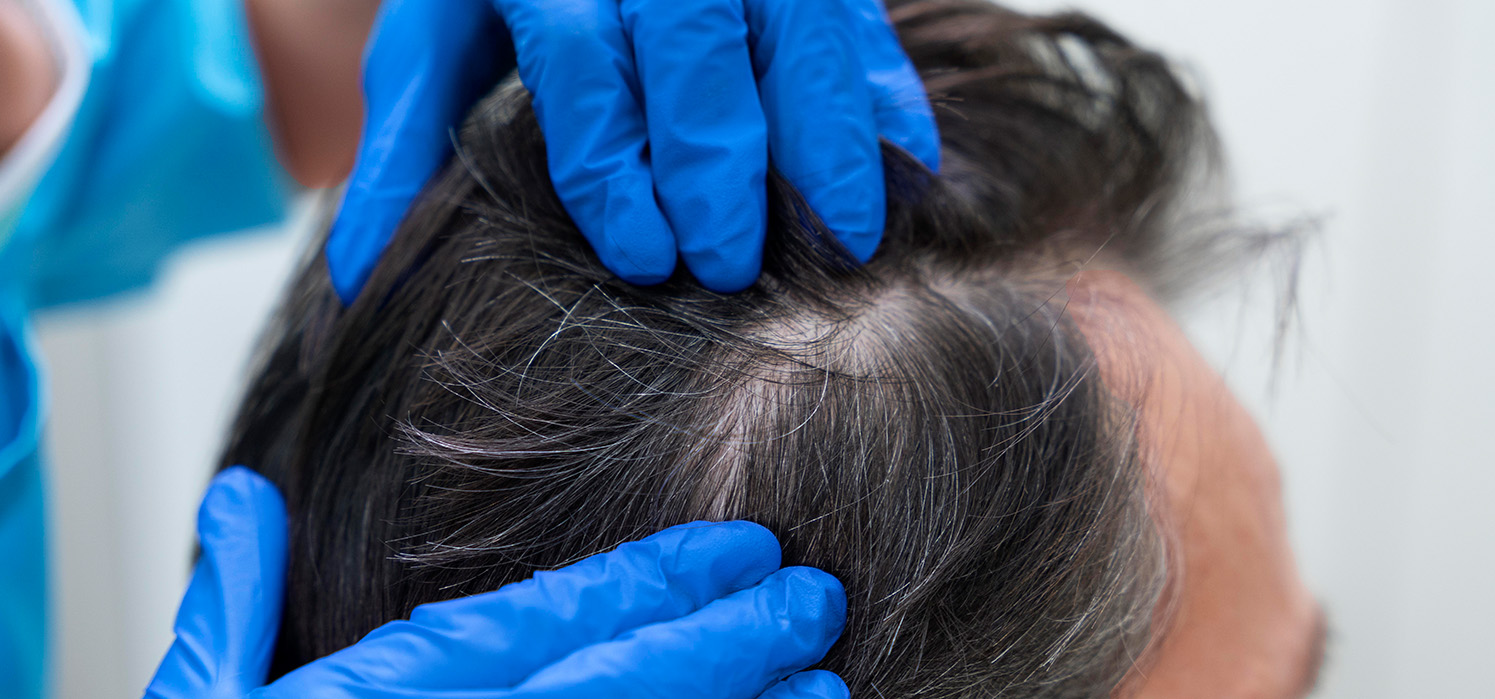
Success Rate in Hair Transplantation
Saç Dökülmesine Sebep Olan Faktörler Nelerdir?
After consulting with your specialist, if your donor area and the sparse or bald area to be transplanted are evaluated as suitable for hair transplantation and your operation is performed by an expert, experienced and reliable team, the success rate of hair transplantation is accepted as 97%. It is reasonable to accept this percentage as the success rate of the team. In the post-operative process, one of the most important parts of the hair transplantation process is to follow the advice and recommendations of your specialist, to take proper care and to take care of your hair as recommended. Under these conditions, in order to talk about “guaranteed hair transplantation”, it is necessary to consider the links of a chain completely. The chain starts with an experienced and specialized team, and continues with the care shown by the individual who has hair transplantation and his/her compliance with the directives and recommendations of the specialist and his/her team. In this case, it is inevitable to achieve the expected and desired result. As a result, success in hair transplantation is possible with the joint dedication and trust of each individual involved.
Contact Us
For detailed information please contact us by filling out the form below.
- Published in General
Can Hair Transplantation Be Performed from the Nape of the Neck?

Can Hair Transplantation Be Performed from the Nape of the Neck?
Nape Hair Transplant
The problem of hair loss, which everyone, regardless of men and women, experiences much more frequently than expected, is a process that involves a lot of research at this stage and when the situation becomes annoying, solutions are sought. Hair transplantation offers the most accurate solution at this point, not only bringing back the patient’s lost hair, but also densifying all the parts that are sparse and open. While researching hair transplantation, questions such as where the transplanted hair is taken from and is it possible to transplant hair from the nape of the neck? Questions like this are asked. We can answer yes to this question. In the hair transplantation process, the hair in the nape area of the patient is used. In this way, the hair in the nape area is easily attached to the transplanted area. Since the patient will have his/her own hair, a complete integrity is ensured in the hairy area on the scalp.
How Is Hair Transplantation Performed and What Should Be Considered?
Hair transplantation is performed by placing the grafts taken from the nape of the neck between the two ears, which is called the donor area, on the parts with hair loss. In this sense, is hair transplantation from the nape of the neck possible? The question is also answered. Different methods used in hair transplantation are suitable for the patient. Apart from this, some items to be considered in the process can be listed as follows:
- The first and most important step is that the procedure, which is a surgical operation, must be performed in an operating room with sterile conditions and by a specialist doctor.
- All health history should be shared with the doctor.
- Caffeine-containing beverages should be stopped one week before the operation. Alcohol, cigarettes and blood thinners should be discontinued one week before the operation.
- On the day of the operation, no natural or chemical products should be applied to the hair and clean hair should be worn.
- The first wash after the operation should be done by the doctor in the clinic.
- In subsequent washes, the hair transplantation area can be washed with fingertips using gentle movements.
- Smoking, alcohol, blood thinners and caffeine-containing beverages are not recommended for one week after the operation.
- Heavy sports should not be practiced for the first month.
- No product or application should be used without the doctor’s knowledge.
- The hair transplantation area should be protected from the sun.
What Are the Most Common Hair Transplant Methods?
FUE and DHI techniques, which are most commonly used in hair transplantation, have very successful results. FUE, the most prominent among the methods, includes two options. Hair transplantation with a tool with sapphire or steel tips provides a progress that the patient will be happy with. The sapphire option helps to get smoother and more grafts. The fact that the patient does not feel any pain thanks to local anesthesia is also considered among the pros of the procedure. The DHI technique is also known as the pen technique. This is because the procedure is performed with a pen-like device. Some of the advantages of the technique are the placement of the grafts taken by opening minimal channels and being among the painless procedures.
Contact Us
For detailed information please contact us by filling out the form below.
- Published in General
Why Does Baldness (Alopecia) Occur? Causes and Treatment
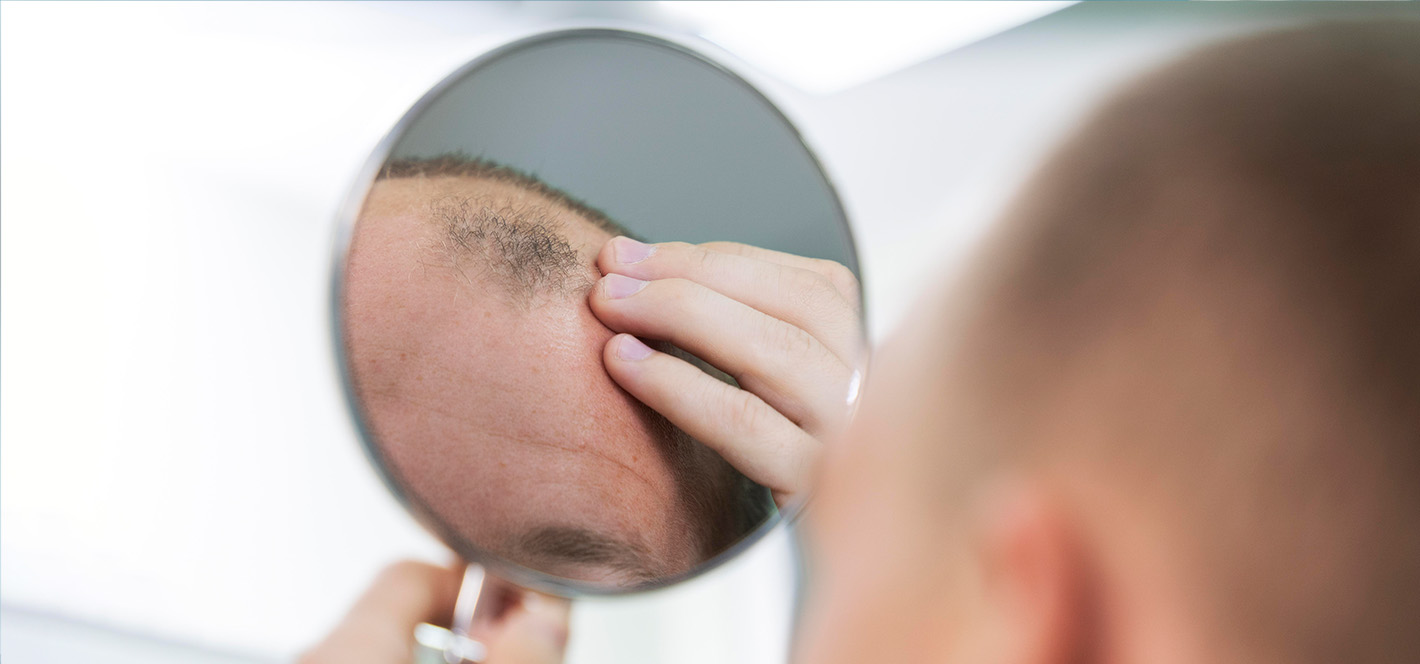
Causes and Treatments of Baldness (Alopecia)
Why Does Baldness Occur?
Baldness occurs if people cannot prevent it after being exposed to hair loss. So, why does baldness occur? According to the researches, the causes of baldness develop depending on genetic and non-genetic factors. Accordingly, many of the related conditions are of genetic origin. In other words, if your family members, especially your father has baldness or your mother has thinning hair, this condition in you is most likely genetic. However, the condition still needs to be diagnosed correctly by a doctor. Treatment methods will also vary depending on the cause of the disease or the related condition. After all, while hair loss within the normal hair loss limit is considered normal, if it exceeds this limit, a doctor’s control is essential. If you cannot understand this, you should still consult your doctor. Involving your doctor in the process will be the most effective thing you can do. For this, you can make an appointment with your physician at the nearest health institution.
Causes of Hair Loss
Since the main cause of baldness is hair loss, it is necessary to look at the causes of hair loss. For this, you can do detailed research or ask your doctor to diagnose your condition. The following items form the answer to the question of why baldness occurs.
- The problem of baldness can occur genetically or non-genetically. The vast majority of cases are caused by genetic hair loss. Although genetic hair loss cannot be stopped, the severity and speed of hair loss can be reduced by various methods. The definitive treatment method for genetic hair loss is hair transplantation.
- The first non-genetic factor is the presence of a skin condition. If there is a skin condition that causes hair loss, hair loss will stop with the elimination of this condition.
- Hormonal imbalances can cause hair loss. Therefore, with the treatment method that provides hormonal balance, hair loss will stop.
- Vitamin deficiencies such as B12, Vitamin D can also cause hair loss. As a result of the supplementation of the relevant vitamins, hair loss will be greatly reduced.
- Stress is the most common condition among non-genetic factors. Therefore, hair loss will end with treatment methods that will reduce stress.
- Intensive use of chemical products such as hair spray, gel, hair dye, etc. on the hair is also among the direct causes of hair loss. By stopping or reducing the use of these substances, hair loss will also end.
Hair Loss Treatment Methods
There are various treatment methods for hair loss. As explained above, when the cause of hair loss is understood and the treatment is carried out and successful results are obtained, hair loss stops. Therefore, if there is a great deal of hair loss in your hair, you should go to the doctor and decide whether the hair loss is genetic in the first place. If it is genetic, hair transplantation is recommended as a definitive solution; if it is not genetic, the treatment will be realized by eliminating the relevant factors and the hair loss will end.
Contact Us
For detailed information please contact us by filling out the form below.
- Published in General
What is the Best Method for Hair Transplantation?
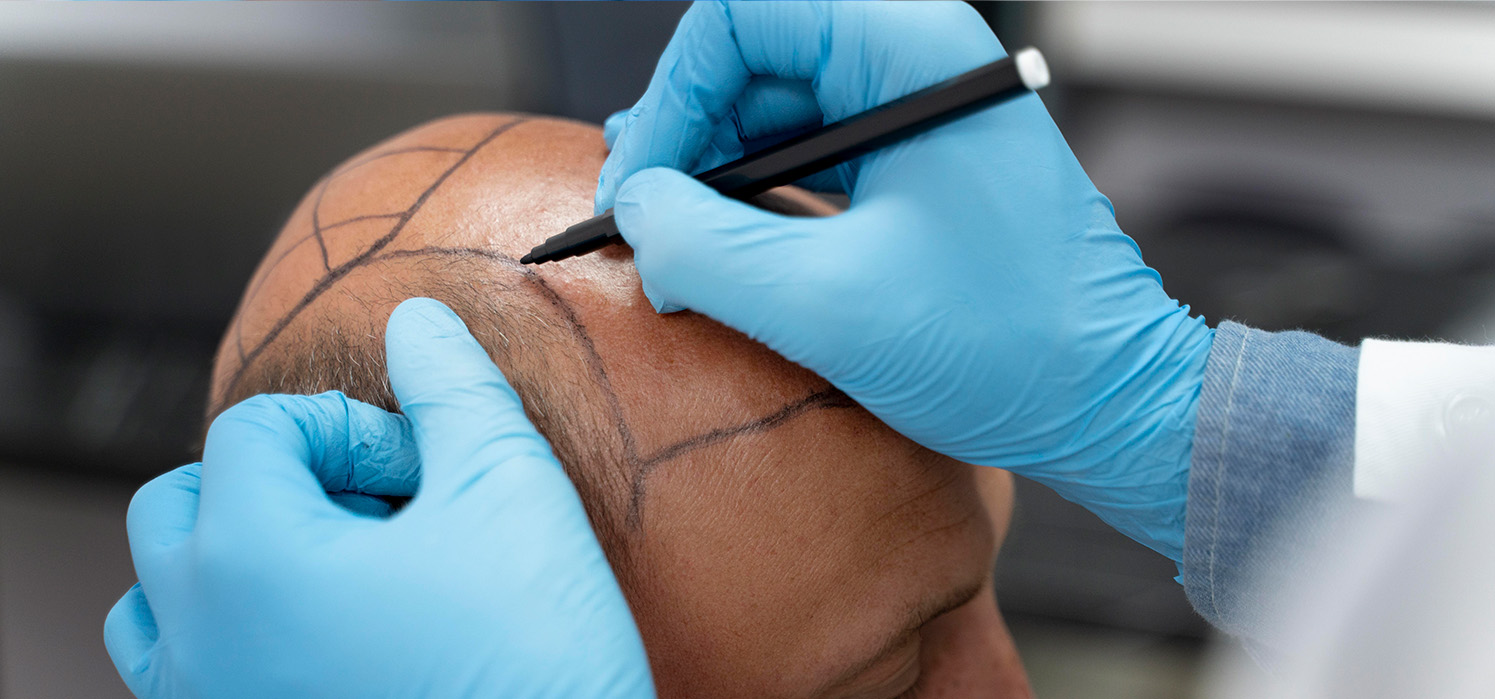
Which is the Best Method for Hair Transplantation?
There are only two methods of hair transplantation.
1- FUT Method
In this method, strips of hair are cut from the donor area coded not to fall out. Hair follicles are extracted from these scalps and transplanted one by one into the previously opened channels in the sparse or bald area. The procedure is finished by suturing the area.
2- FUE Method
In this method, hair follicles (grafts) are taken one by one from the donor area and these hair follicles are transplanted into the previously opened channels. Since the extraction is done one by one and there is no incision in the donor area, the operation ends after the transplantation. Today, the most efficient and successful method accepted all over the world is the FUE method. Contrary to what is said, DHI or SAPPHIRE are not hair transplantation methods, but channel opening techniques developed within the FUE method. In the light of this information, the method to be preferred is the FUE method, which is used and accepted in hair transplantation, and the technique to be used in channel opening is the one to be decided. When deciding between DHI and SAPPHIRE techniques, you should remember that the hair structure, skin hardness and the openness of the area to be transplanted will be decisive in these techniques, and that you can make the most accurate decision and the most appropriate technique with the recommendation of your specialist.
Contact Us
For detailed information please contact us by filling out the form below.
- Published in General
Sedated Hair Transplantation with Sedation (Narcosis)

Hair Transplant with Sedayson
What is Sedayson?
We can define sedation as the conscious state of anesthesia. While under anesthesia the individual is asleep, during sedation the individual is awake and does not feel pain or ache. In short, the individual is conscious and numb during the operation.
How is Sedation Applied?
The anesthesiologist administers controlled medication to the individual intravenously. Although the patient is conscious, the individual becomes ready for the operation when the area to be treated becomes numb.
Who is Sedation Applied to?
There is no obstacle to the use of sedation if preferred. It is a saving practice especially for individuals with needle phobia, fear and anxiety. There is no age limit or restriction for sedation.
Advantages of Sedation;
- No sensation of pain or soreness
- Prevents sudden movements arising from fear, anxiety or reflex
- Since consciousness is clear, it is possible to follow the process until the end of the procedure.
Contact Us
For detailed information please contact us by filling out the form below.
- Published in General
Which Technique Should Be Preferred in Hair Transplantation?

Which Technique Should Be Preferred in Hair Transplantation?
Saç Dökülmesine Sebep Olan Faktörler Nelerdir?
FUE method has been used in hair transplantation for more than 20 years. As it is known, the FUE method is the most valid method accepted all over the world and gives the best results in hair transplantation. DHI (pen technique) is not a hair transplantation method, it is a technique that combines grooving and transplantation processes in the FUE method with a pen-shaped tool we call “choi pen”. Sapphire tip technique is a channel opening technique included in the FUE method. In choosing between these two techniques, hair structure, lightness, structure of the scalp, allergic condition, shaved or unshaved transplantation request are taken into consideration. The best choice would be to submit your request and act in line with your expert’s recommendation.
Contact Us
For detailed information please contact us by filling out the form below.
- Published in General
Where is the Best Hair Transplant Center?

Where is the Best Hair Transplant Center?
Saç Dökülmesine Sebep Olan Faktörler Nelerdir?
If you do not know anyone who can give you a reference, you are faced with a research process to reach the best hair transplantation center. At the hair transplantation center you reach, you must first make sure that your hair transplantation operation will be performed by an expert team in a clinical environment. You should definitely request before/after photos and videos from your expert, as well as information about the process. These images will give you an idea about the success rate of the hair transplantation center you choose. Hair transplantation is a lifelong operation. For this reason, when making your choice, we recommend that you consider how well the hair transplantation center meets your expectations and criteria, rather than whether it is in Istanbul, Antalya or Izmir. It is very important for the expert or representative of the hair transplantation center you have chosen to be accessible to manage the process. It is possible to reach the specialist, his team, and a hair transplant center where you can fully receive this support, by taking into account the details we have mentioned above, who will answer everything you have in mind and ask you, and who will be with you with the same interest and support in the post-operative period.
Contact Us
For detailed information please contact us by filling out the form below.
- Published in General
What Percentage Of Transplanted Hair Grows?
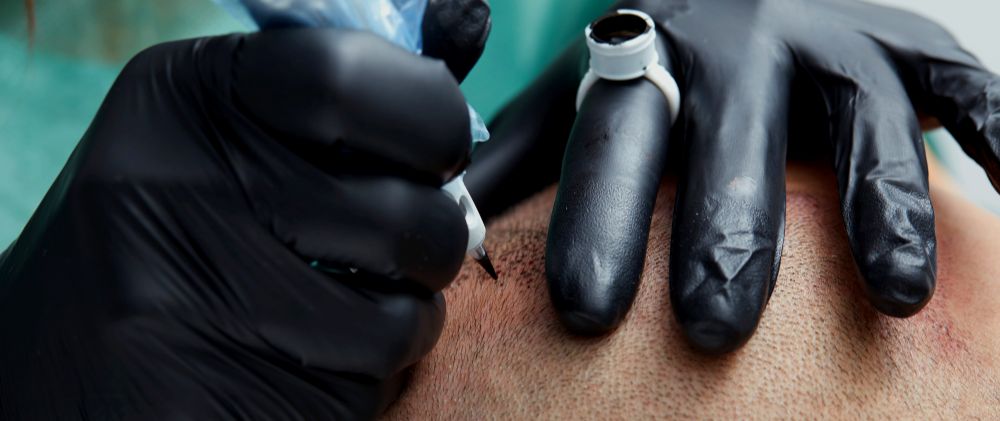
What Percentage Of Transplanted Hair Grow?
When Does Transplanted Hair Grow?
Individuals who need hair transplantation may experience confusion when they do a detailed research on this subject. In the procedure where there are many question marks, the most accurate answer can be given by an expert hair transplant specialist. During the research period before proceeding to this stage; When can I return to my normal life? Is hair transplantation really a permanent procedure? What percentage of the transplanted hair grows? Many questions such as are waiting to be answered. The research conducted by subjecting it to the objective evaluation process will lead to the right centre and all question marks will be answered. The information obtained, which should be supported by the opinions of the doctor, mostly affects the decision to decide on the transplantation process. At this point, a few general information can be shared. If the instructions that the patient should pay attention to in the process applied by the doctor in the operating theatre and covering before and after are fulfilled, the transplanted hair is permanent and healthy for life. The healing process progresses gradually but does not take a long time. The patient can return to normal life step by step in the first week. What percentage of transplanted hair grows? The question varies according to many factors. Some of these are:
- Choosing the right and experienced hair transplant centre
- Personal factors of the patient
- Hair retention time
- It can be said as whether the instructions are followed or not.
What Are The Factors Causing Hair Loss?
There are dozens of factors that cause hair loss. Among these, there are prominent and less common ones. Generally speaking, hair loss can be caused by diseases and lifestyle. We can list the factors that cause hair loss as follows:
- Menopause
- Genetic predisposition
- Pregnancy
- Tooth decay
- Malnutrition
- Intense stress
- Intensive abrasive hair treatments
- Chemotherapy
- Some medicines
- Diseases affecting hair structure
- Hormonal disorders
- Vitamin deficiencies
What Is The Most Definitive Solution For Hair Loss?
Although methods such as natural methods and cosmetic products are tried for hair loss at first, they do not have a permanent feature. Therefore, hair transplantation applied in the right centre and the patient’s dedication constitute the solution that reverses hair loss by providing integrity. Other methods performed unconsciously before may interrupt the hair transplantation process in some cases. For this reason, a detailed research can be a saviour when making an application decision on any health-related issue.
Contact Us
For detailed information please contact us by filling out the form below.
- Published in General











